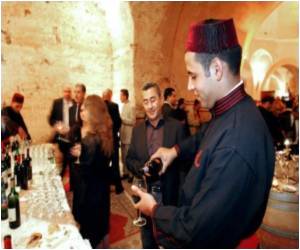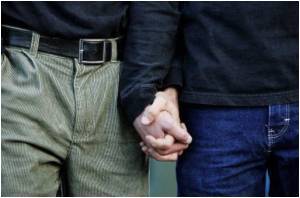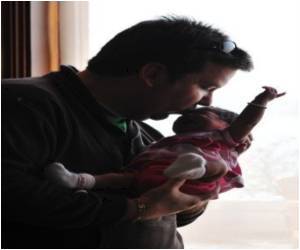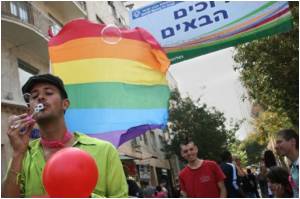
"I am the first Moroccan writer who has spoken openly about his homosexuality, to acknowledge it, but without turning my back on the country I'm from," he said.
"My homosexuality, I already felt it from the age of 13, at school.
"But despite this, I feel Muslim. There is no incompatibility between Islam and choices of sexual identity," he told AFP on a recent visit back to Morocco.
Taia, who writes in French and has been translated into Spanish and English, emerged from obscurity to make a splash on the French literary scene with novels such as the 2005 "Le Rouge du Tarbouche" (The Red of the Fez), an autobiographical account of his life in Paris, where he moved in 1999.
In November, he was awarded the prestigious 2010 Prix Flore for young authors.
A slim, softspoken man with a timid smile, the writer was born in a working-class neighbourhood in Sale, the Moroccan capital Rabat's twin city, into a childhood marked by deep poverty.
"My father was a chaouch (messenger) at the national library in Rabat. We were nine children who lived on top of each other in two rooms," he said.
"There was nothing to eat. You had to fight to eat. We spent our days on the streets. We were barefoot." His mother, a housewife, was illiterate.
After studying French literature at university in Morocco, Taia, then 26, moved to Paris, pursuing a doctorate at the Sorbonne and writing his first novels.
"Le Rouge du Tarbouche" describes his "dream of writing" in Paris, "a city that doesn't lift you up if you fall". The book, his second, was also the first to mention his homosexuality.
Notoriety back home came two years later, in 2007, when Taia openly proclaimed his homosexuality in a frank interview with TelQuel, an independent Moroccan weekly known to take a critical line towards the government.
The writer quickly came under fire from part of the press and from Islamic circles in Morocco, where homosexuality -- as in most Arab states -- is considered a criminal offence.
In Morocco, it is punishable by six months to three years in prison but like liquor and wine consumption -- proscribed for Muslims under Moroccan law -- is tolerated provided practitioners don't flaunt their difference.
"For me homosexuality is not a cause, but a personal freedom. It is normal that I defend homosexuals because they are oppressed individuals," Taia told AFP.
Despite the scandal, Taia continues to spend much time in Morocco, where "obviously the fact that I am a writer published by big French houses protects me" from being persecuted for his sexual orientation.
Taia said he is "very attached to Morocco" and that "despite everything, I feel here like everybody else. I come from the same world."
He also feels the country is slowly changing and becoming more tolerant of differences.
"Despite some regression in Morocco, over the last 10 years there have been extraordinary things in terms of declarations of personal freedoms by many parts of Moroccan society," he said.
For Taia, the vocal conservatives who often dominate debate in the Islamic world are not a true reflection of how most Muslims feel.
"These trends, which are in the minority, are the result of the failure of social policy in the Arab world," he said.
"What interests me is the overwhelming majority, people who are simply Muslims and to whom I feel I belong."
Source-AFP









